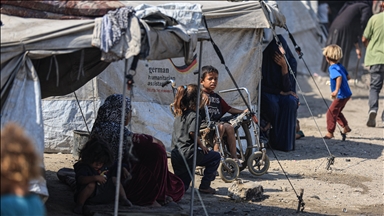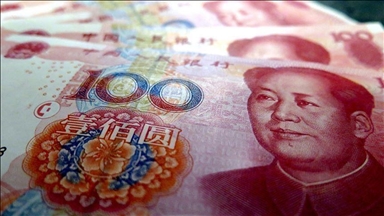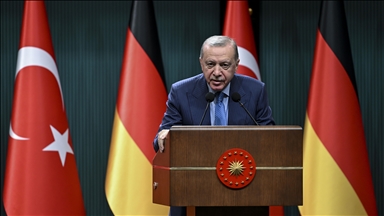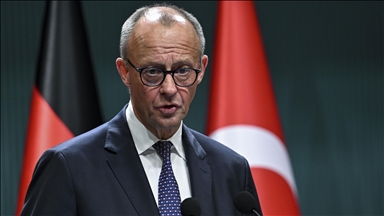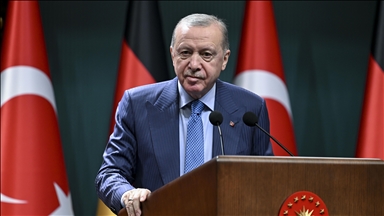Experts slam stereotyping after German sex attacks
Sexual assaults during New Year’s Eve in Cologne have been blamed on refugees, fueling fear and xenophobia analysts say
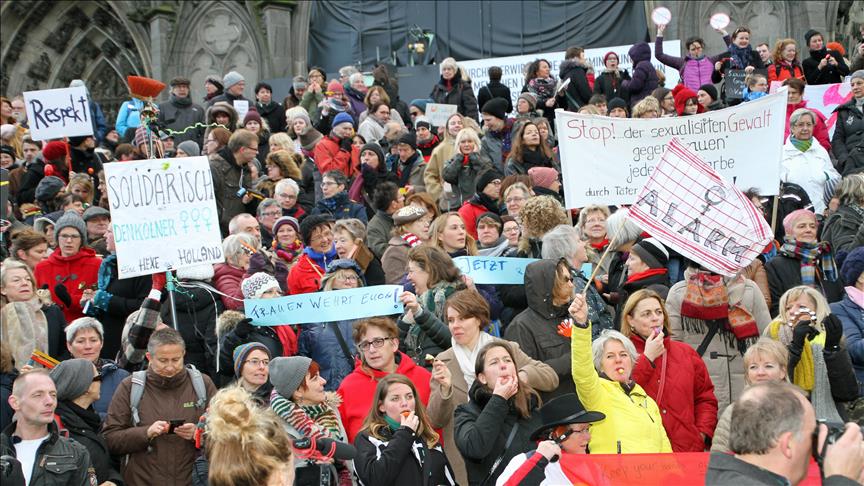 Women and men protest against racism and sexism in the wake of the sexual assaults outside the Cologne Cathedral in Cologne, Germany, 09 January 2016. ( AA - Mesut Zeyrek )
Women and men protest against racism and sexism in the wake of the sexual assaults outside the Cologne Cathedral in Cologne, Germany, 09 January 2016. ( AA - Mesut Zeyrek )
BERLIN
Experts have warned about racist generalizations after robberies and sex attacks marred New Year’s Eve celebrations in Germany.
Philipp Salhoff, a senior expert from the Berlin-based Progressive Center think-tank, said the events in Cologne had been exploited by populist and far-right parties and used for anti-refugee propaganda.
“Why are we now witnessing many prejudiced judgments, generalizations about refugees and foreigners, after a few of them have possibly committed terrible crimes?"
“It seems that in fact some people have just waited for such an occasion to happen, in order to express their racist views without any constraints,” Salhoff told Anadolu Agency.
“Especially crimes against women and children have often been instrumentalized because they flare-up emotions in public. But when we are faced with the crimes of child abuse for example, nobody is talking about collective guilt for men,” he added.
The robberies and sexual assaults at Cologne’s central station on New Year’s Eve were blamed on mostly Arab and North African refugees in the media.
There have been 516 reports of sexual assaults and thefts at Cologne’s New Year celebrations; at least one allegation of rape is also being investigated.
The events have sparked security fears in German society about the refugee influx and far-right groups have tried exploiting the incidents to attack the government’s open-door policy for asylum seekers.
Salhoff said the events in Cologne were serious and a totally new thing, which should be examined without generalizing about refugees, trying to portray them as potential criminals.
“Arguing that there are no criminals among the hundreds and thousands of refugees would be naive."
“Refugees and migrants are not better or worse than German people."
“Think about the dozens of attacks against refugee houses in Germany. What would have been our reaction, if others generalized this to all Germans?” he said.
Salhoff said populists and far-right groups have effectively used social media to exploit events in Cologne and disseminate their anti-refugee propaganda.
Some far-right extremists even formed gangs on social media after the events and attacked foreigners in the streets of Cologne. Police said two Pakistanis and one Syrian national were injured in these xenophobic attacks.
Professor Joachim Trebbe of the Free University of Berlin criticized media coverage after the events in Cologne.
He said many reports made generalizations about young North African men and the way the events are reported led to perceptions of refugees as potential criminals.
“In the German media, there has been a general pattern, according the press code. In reporting criminal events, the ethnic or national background of the people concerned should not play a role."
“But in the coverage of recent events, it seems that the opposite had been the case – they were brought together,” he said.
“The crucial point in the media coverage of the events has been the attributing of guilt to North African young men, which was, in a way, generalized to all,” he stressed.
Trebbe said many media organizations were also faced with a dilemma, caught in between reporting the unprecedented events as objectively as possible on the one hand, and to be politically correct on the other, which then led to the accusations of self-censorship by some others.
Trebbe added that populist and xenophobic movements like PEGIDA, which accuse the mainstream media of lying to the people, have extensively used alternative internet platforms, social media and blogs to disseminate anti-refugee propaganda.
Germany is shouldering the largest part of Europe’s refugee crisis and Chancellor Merkel’s coalition government is facing growing public criticism due to its liberal policy.
The EU's biggest economy has received a record 1.1 million refugees in 2015, and Syrians were the largest group with 428,000, followed by 154,000 Afghans and 121,000 Iraqis.
Anadolu Agency website contains only a portion of the news stories offered to subscribers in the AA News Broadcasting System (HAS), and in summarized form. Please contact us for subscription options.


